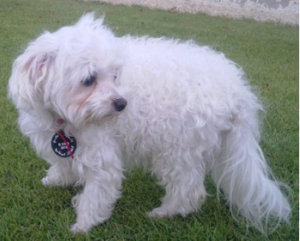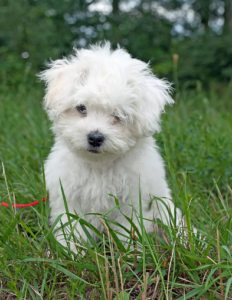Bolognese Dog Price: What You Should Know Before Adopting a Bolognese Dog

Bolognese Dog
The Complete Guide to Owning a Bolognese Dog: Costs, Care, and Companionship
For those seeking an affectionate and charming canine companion, the Bolognese dog is an excellent choice. Bolognese dogs are cherished for their delightful personalities and unwavering loyalty, making them beloved pets among dog enthusiasts. However, taking on the role of a Bolognese dog owner comes with important responsibilities and various considerations. As a dedicated Bolognese dog enthusiast, I’m here to provide you with comprehensive insights into the world of Bolognese dogs through this informative blog. We’ll explore the factors influencing the cost, additional expenses, essential knowledge for potential owners, proper care practices, common health concerns, and the sheer joy of sharing your life with a Bolognese dog.
Understanding the Price of a Bolognese Dog
Bolognese Dog Prices, Appearance, Health Issues, and Prices
| Bolognese Dog Type | Appearance | Common Health Issues | Price Range |
|---|---|---|---|
Standard Bolognese |
White, fluffy coat, expressive dark eyes |
Cataracts, hip dysplasia, skin allergies |
$1,500 – $3,000 |
Miniature Bolognese |
Compact, toy-like appearance, similar to the standard variety |
Cataracts, patellar luxation, dental issues |
$2,000 – $4,000 |
Rare Blue Bolognese |
Uncommon blue coat color, similar to the standard variety |
Cataracts, hip dysplasia, progressive retinal atrophy (PRA) |
$2,500 – $4,500 |
When you’re pondering the addition of a Bolognese dog to your family, one of the very first questions that arises is, “What is the price of a Bolognese dog?” The prices can vary significantly and are influenced by various factors:
1. Breed Quality: The quality of a Bolognese dog’s lineage and pedigree plays a significant role in determining the cost. Dogs from champion bloodlines may command a higher price.
2. Breeder Reputation: Reputable breeders who prioritize the health and well-being of their dogs may charge a premium for their puppies.
3. Age: The age of the Bolognese dog is a factor that affects the cost. Generally, puppies are more expensive than older dogs.
4. Location: Prices can differ based on your geographical location, with urban areas typically having higher prices due to increased demand.
5. Health and Documentation: Bolognese dogs with health certificates, vaccinations, and proper documentation may be priced higher due to their perceived quality and authenticity.
The cost of a Bolognese dog can often range from $1,500 to $4,000 or more, depending on these factors. Conducting thorough research and, if possible, visiting the breeder or seller in person is essential to ensure that you acquire a healthy and ethically raised Bolognese dog.
Additional Considerations Beyond the Initial Cost
Owning a Bolognese dog involves more than just the initial purchase price. It’s crucial to consider the ongoing expenses that come with responsible ownership:
1. Housing: Ensure that you provide a comfortable and secure space for your Bolognese dog. You’ll need to budget for a cozy bed, crate, or playpen.
2. Food and Supplies: Allocate funds for high-quality dog food, feeding bowls, grooming supplies, toys, and other essential accessories.
3. Training: Bolognese dogs benefit from training and socialization to ensure they grow up to be well-behaved and obedient companions. Enrolling in training classes or purchasing training aids may be necessary.
4. Grooming:The beautiful coat of a Bolognese dog requires regular grooming. You may need to invest in grooming tools or professional grooming services.
5. Healthcare:Plan for routine veterinary visits, vaccinations, and potential emergency medical expenses. Consider the option of pet insurance to manage unexpected healthcare costs.
6. Socialization: Bolognese dogs are sociable animals, so you’ll need to dedicate time for bonding, play, and mental stimulation.
7. Travel Expenses: If you travel frequently, it’s essential to budget for pet-sitting or boarding services.
8. Licensing: Be aware of local regulations that may require the licensing and registration of pet dogs in your area.

Bolognese Dog
Essential Information for Prospective Bolognese Dog Owners
Before welcoming a Bolognese dog into your home, it’s vital to be informed about some key facts regarding these charming dogs:
1. Size: Bolognese dogs are small in size, typically weighing between 5 to 9 pounds and standing about 9 to 12 inches tall at the shoulder.
2. Temperament: They are known for their affectionate and gentle nature, making them excellent companions for families and individuals alike.
3. Hypoallergenic Qualities: Bolognese dogs have small hairs rather than fur, and they are considered hypoallergenic, making them suitable for individuals with allergies.
4. Lifespan: With diligent care, Bolognese dogs have a relatively long lifespan, often living for up to 14 to 16 years.
5. Exercise Needs: Although not highly active, Bolognese dogs require daily walks and playtime to maintain their health and happiness.
6. Grooming Requirements: Their long, white coat necessitates regular grooming to prevent matting and to keep them looking their best.
Proper Care and Nutrition for Your Bolognese Dog
Caring for a Bolognese dog is a fulfilling experience that involves several key responsibilities:
1. Feeding: Ensure your Bolognese dog receives high-quality dog food suitable for their size and age. Be cautious not to overfeed, as obesity can be a concern.
2. Grooming: Regular grooming is essential to maintain their beautiful coat. Brush their coat several times a week and consider professional grooming services when necessary.
3. Exercise: While they don’t require intense exercise, daily walks and playtime are essential to keep them in good physical and mental health.
4. Training: Bolognese dogs are intelligent and respond well to positive reinforcement training methods. Early socialization is crucial to help them develop into well-behaved adults.
5. Healthcare: Regular vet check-ups are essential to monitor their health. Keeping up with vaccinations, dental care, and preventive treatments is necessary for their well-being.
Common Health Concerns with Bolognese Dogs
Bolognese dogs are usually healthy, but just like every other breed, they can sometimes be susceptible to specific health issues, including:
1. Eye Problems: Some Bolognese dogs may sometimes experience eye conditions such as cataracts, progressive retinal atrophy (PRA), and dry eye.
2. Skin Allergies: Certain individuals around Bolognese dogs may develop skin allergies, leading to itching and discomfort.
3. Hip Dysplasia: This hereditary condition can affect the hip joints, potentially causing mobility issues.
4. Ear Infections: Their floppy ears can make them prone to ear infections, making regular ear cleaning an essential practice.
5. Dental Issues: Dental problems can occur, so regular teeth cleaning and oral care should not be overlooked.
A Balanced Diet for Your Bolognese Dog
A well-balanced diet is vital for your Bolognese dog’s overall health and well-being. Consider the following dietary tips:
1. High-Quality Dog Food:Opt for dog food formulated for small breeds that meets their nutritional requirements without the inclusion of fillers or artificial additives.
2. Portion Control: Measure your Bolognese dog’s food
to avoid overfeeding, which can lead to obesity.
3. Fresh Water: Always provide clean, fresh water for your dog.
4. Treats: Use treats in moderation and opt for healthy options like small pieces of fruits or vegetables.
Owning a Bolognese dog can be a heartwarming journey filled with love, joy, and long lasting companionship. While the cost of acquiring a Bolognese dog is an important consideration, the bond and happiness they bring into your life are truly invaluable. With proper diligent care, a well-balanced diet, and a nurturing environment, you and your new Bolognese dog can enjoy a lifelong partnership brimming with love, laughter and joy. So, open your heart to the world of Bolognese dogs and embark on an adventure of canine companionship that will warm your soul.
Free Reports
- Cockatiel Sounds: What Type of Sounds Do Cockatiels Make?
- Cane Corso Lab Mix: What You Need To Know Before Adopting Your New Cane Corso Lab Mix
- Belgian Malinois Grooming: How to Properly Care For Your Belgian Malinois
- Hamster Vomiting: What You Need To Do When Your Hamster is Vomiting
- Manchester Terrier Price: What You Should Before Adopting Your Manchester Terrier
- Boerboel Life Span: How Long Do Boerboel Dogs Usually Live?
- Canaan Dog Price: Everything You Should Know About Canaan Dogs Before Adopting
- Do Cane Corso Shed: How Much Cane Corsos Shed and How to Prevent Shedding
- Cane Corso German Shepherd Mix: Everything They Don’t Tell You About This Unique Mix
- Cane Corso Doberman Mix: Check Before You Buy! What They Don’t Tell You About Cane Corso Doberman Mixes
- Brindle Cane Corso: What You Need to Know Before Adopting
- Cockatiel Eye Problems: What to Do When Your Cockatiel Has an Eye Infection
- Top 25 Sun Conure Names: How to Name a Sun Conure, Care Tips and Tricks
- Friesian Horse Price: Everything You Need to Know Before You Buy a Friesian Horse
- Friesian Colors: The Uniqueness of Every Friesian Horse Color, Price and Care Tips